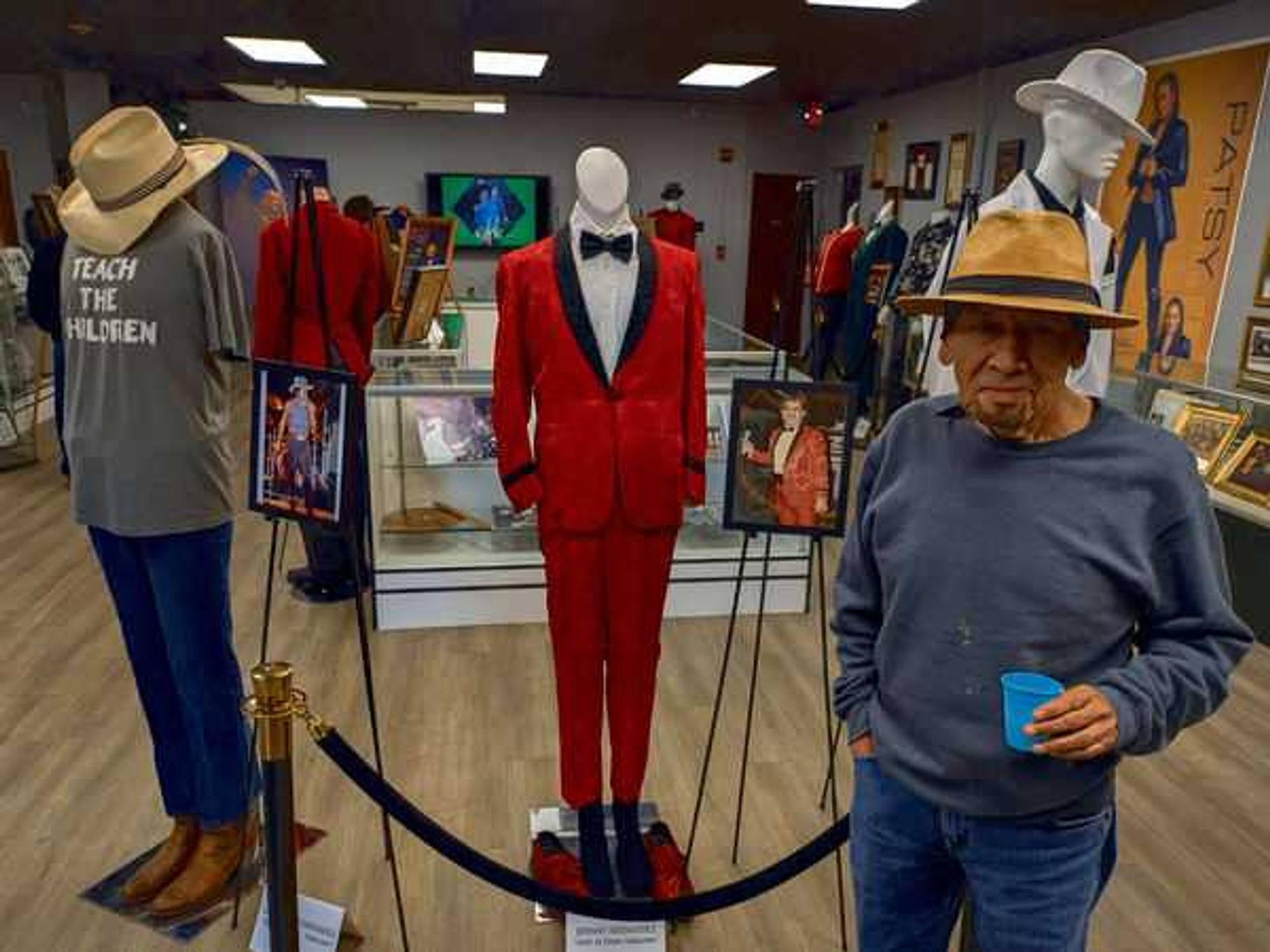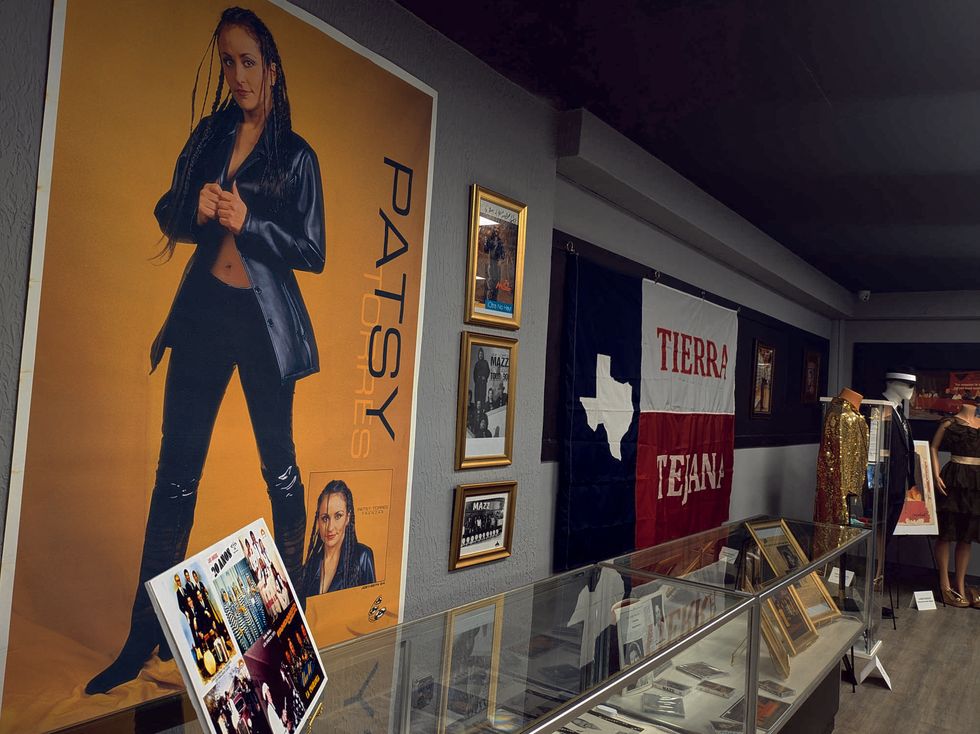TATTERED JEANS
Oil pain seeps into the radio and an escape to a green slime wonder home
 It's hard to believe this beauty is so close to so much devastation.Katie Oxford
It's hard to believe this beauty is so close to so much devastation.Katie Oxford Some things, you have to stop and take a picture of.Katie Oxford
Some things, you have to stop and take a picture of.Katie Oxford Raymond and Anna Mae Dupre have been married for 63 years.Katie Oxford
Raymond and Anna Mae Dupre have been married for 63 years.Katie Oxford The picture wall on Anna Mae Dupre's home says a lot.Katie Oxford
The picture wall on Anna Mae Dupre's home says a lot.Katie Oxford Nature isn't far from the house.Katie Oxford
Nature isn't far from the house.Katie Oxford Curtis, Raymond and Anna Mae Dupre on the front porch.Katie Oxford
Curtis, Raymond and Anna Mae Dupre on the front porch.Katie Oxford
Editor's note: Katie Oxford is on the ground and in the boats in Louisiana, reporting from the heart of the Gulf oil spill disaster. This is the fifth of her columns from the scene.
Driving along highway 665 toward Montegut, La., I turned on the radio, still tuned to a station (WWL) I’d been listening to for nearly a week. The morning before, the topic had been the public’s negative perception of Gulf seafood. In other words, was it OK to eat? To this announcer at least, the answer was not only yes, but hell yes!
He was irate with one “Luby’s” restaurant in Houston where a sign was displayed stating that none of their catch was from the Gulf but rather “northern regions, including Iceland and Alaska.” I know this last part by heart because he repeated these words like someone reciting the Rosary.
On this morning, however, the announcer was subdued and reverent. He had the mayor of Grand Isle on the line — David Camardelle — and clearly, this mayor loved his city and its citizens deeply.
For a moment, the mayor wanted to put aside booms and berms — and turn to the youngsters in his community who typically this time of year were swimming and doing what kids usually like to do. This was no typical summer. Inside or out.
“They see their parents looking worried and then they start worrying,” the mayor said. “Their parents are trying to tell them everything’s gonna be OK … these kids need something to do!”
Mayor Camardelle, with the help of others, had set up a summer program for these youngsters that also put them on a payroll — thereby helping the kids and therefore parents. As the mayor explained what kind of work these kids actually performed — his voice changed.
“You know what we really do with these kids?” he told the announcer, “We just keep tellin’ em’ … it’s gonna get betta … it’s gonna get betta…”
Like the announcer had the day before, the mayor repeated these words again and again, only eventually for the mayor, his heart gave and he broke into tears. You just knew this was one tough guy with broad shoulders who seldom, if ever, cried. Carrying such enormous weight through a storm now 93 days old and no doubt sleep deprived to boot — who wouldn’t? The guy needed a break. I let up on the accelerator a little and cried with him.
Finding the green slime
About 10 miles farther down the road, I saw something in the ditches that my friend Robert Smith had talked about a few days earlier. “I’m going to call it something not correctly,” he warned, “but I call it green slime. You talk about the food chain now … this is the stuff that feeds all of us starting from the bottom up! What happens when that’s gone?” he wondered, “and no one’s talking about it!”
I pulled to the side of the road and got down in a ditch with my camera. After firing off a few shots of the green slime, gorgeous in color, my eyes wandered across the road to an area of oak trees just beyond a little brick house. I turned into the driveway and inched forward until the pavement ended.
I thought I’d come to heaven on earth. Certainly for herons. Their slender bodies stood gracefully throughout the open green space, pointing upward like miniature church steeples. I cut the engine, left the door ajar and crept closer with my camera, trying not to disturb them. A few frames into it, a woman walked out the back door of the brick house wearing socks the color of the green slime I’d just studied.
“I’m sorry,” I said quickly, “I should have knocked first … but I wanted to get a picture of these herons before they flew off.” “While they’re still white,” I wanted to add.
“You can get a gun and shoot em’ if you want to,” she said. Then she smiled. “No … not the herons.”
I could have spent the day with Anna Mae Dupre and almost did. She’s country folk with a heart seemingly as big as her oak trees. Her accent was from another world and I often had to ask her to repeat things. “I’ll give you my accent (thoroughly southeast Texas) if you’ll give me yours,” I offered. Her laugh sounded like a combination of wind chimes and that of a child’s.
Her husband Raymond mosied out the back door and sat down gently next to Anna Mae, now seated in a swing. Seconds later, their son, Curtis, peddled up on a bicycle that to my delight, had both a bell and a basket.
We talked about their brick house built in 1973, the oaks they planted in 1948, an important date coming up — their 63rd wedding anniversary on July 6. Curtis remained silent, sitting on the swing with one arm draped behind his papa and keeping his eyes on me as if thinking, “What exactly are you up to, lady?”
That is, until somehow we got on the subject of pirogues, a canoe like boat also called a “dugout” made for one person.
“Curtis has a pirogue,” Mr. Dupre said, “built in 1901.”
“It was built from one piece of wood,” Curtis added, “from a cypress tree.”
“If you want, we can go get it,” Mr. Dupre offered kindly, “Curtis just lives across the street.”
“No wonder he’d looked at me suspiciously,” I thought. Some ragamuffin blonde out front, nose down in his ditch taking photographs of green slime.
Anna Mae, however, wanted to do something else. Taking my arm, she said, “Come see my pictures.”
A break from the oil
Entering their home was as pleasant as dipping your bare feet in a summer stream. It felt cool and refreshing. We walked through her spotlessly-clean kitchen to the living room, where Anna Mae pointed to photographs hanging on wood walls. Tons of them. Pictures of their four children, seven grandchildren, four great grandchildren and ones of her and Raymond celebrating three wedding anniversaries in particular … in 1947, 1950 and 1962.
As we walked back through her kitchen I told her how good her house felt.
“Well, you know,” she said, “Father Thomas wanted to come over and bless it. I told Raymond it was OK with me. You know,” she chuckled, moving closer, “when Father Thomas walked out the door he said ‘there’s nothin’ wrong in this house’.”
“Sure feels that way to me,” I smiled.
There was something else refreshing too. For one whole hour, no one had uttered a word about oil or the countless forms of suffering taking place. As with other times during my trip to Louisiana, it was a moment to mark.
I backed out slowly from their driveway feeling my heart warmed; that that brick house was as sturdy as the woman of it; and that green slime and mama’s like Anna Mae Dupre … feeds all of us.
When I called Anna Mae a few days ago to wish her a happy belated anniversary, she sounded glad.
“I think of you every time I see one of these egrets,” she called them.
I asked her if they’d enjoyed themselves on their anniversary, and with her Anna Mae accent she answered.
“We’re ready for another one, honey,” she said with laughter of a child’s.
Other articles in Katie's Oxford's Louisiana series:

 The newly opened Totally Tejano Hall of Fame and Museum includes a growing collection of memorabilia. Photo by Edmond Ortiz
The newly opened Totally Tejano Hall of Fame and Museum includes a growing collection of memorabilia. Photo by Edmond Ortiz